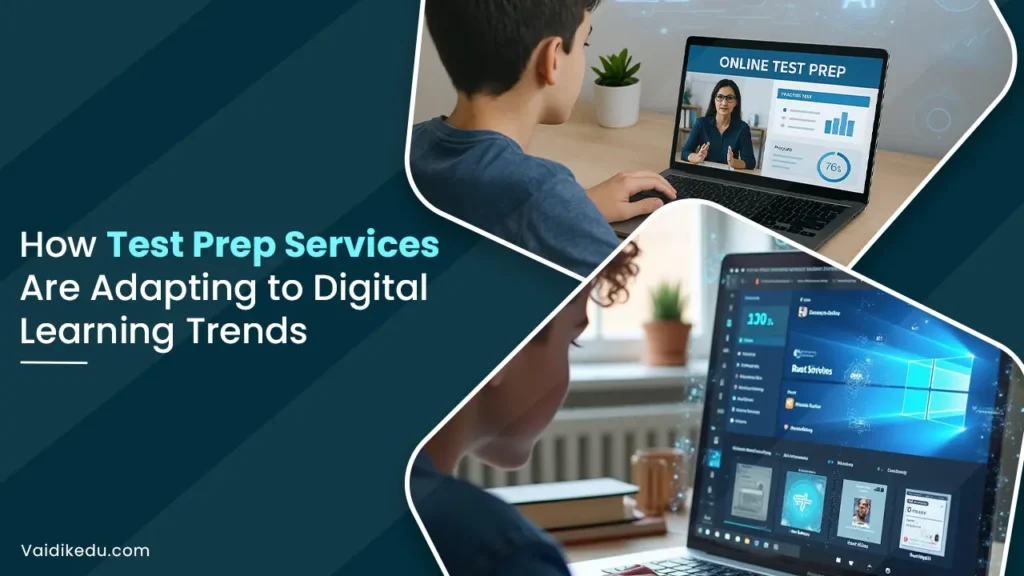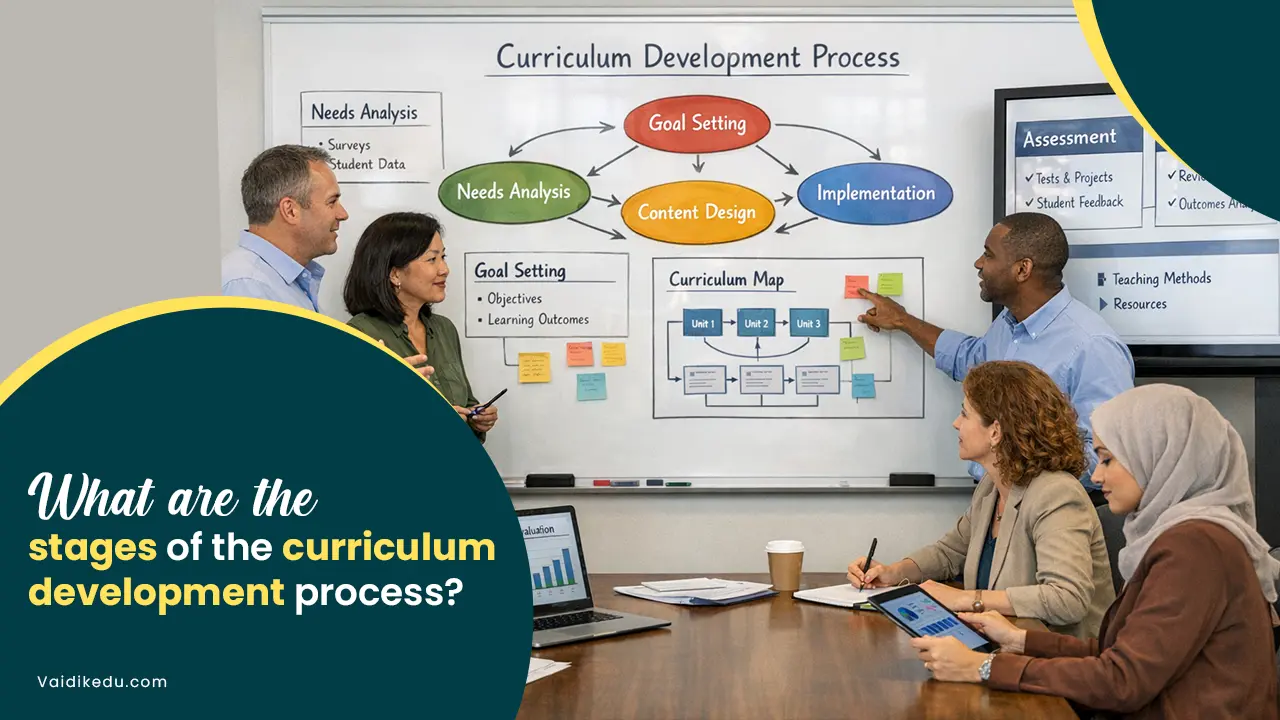
Digital learning has revolutionized education in many ways in recent years, and exam preparation is no different. Test preparation services are adapting to match the demands of students who are depending more and more on technology for their academic needs.
You may find a variety of internet resources and study techniques that make studying easier, more focused, and more efficient, whether you’re getting ready for any standardized test.
How Test Prep Services Are Embracing The Digital Revolution To Offer Better Learning Experiences.
1. Online Courses And Study Platforms
The days of students only using study materials or in-person instruction are long gone. The majority of test-prep companies now provide extensive online courses. Because of the flexibility these platforms offer, students can access course materials at any time and from any location.
Students can study at their own pace, according to their schedule and preferred method of learning, with tools like interactive tests, video tutorials, and lengthy practice exams.
Students can now enjoy the advantages of professional instruction without having to commute or adhere to strict schedules, whether it is through an instructor-led webinar or a self-paced course. Busy students juggling extracurricular activities, employment, or school will find this accessibility very useful.
2. Personalized Learning Paths
The use of artificial intelligence (AI) to customize learning is one of the biggest developments in digital learning. These days, a lot of online test-prep firms provide tailored learning routes, in which the system changes according to a student’s development.
Real-time student performance analysis is done by AI-powered platforms, which then modify lectures to concentrate on the areas in which students most need to develop.
For instance, the platform will show additional practice problems and educational videos to help students who are having trouble with specific math concepts.
Students are guaranteed to spend their time concentrating on the most important aspects of their unique learning requirements thanks to this dynamic method.
3. Mobile Applications For On-The-Go Education
Studying is now even more convenient thanks to the development of mobile technologies. In order to take advantage of this, test prep companies have developed mobile applications that let students study from any location. Students can instantly access their study materials while on the bus, waiting for class to start, or taking a break at work.
Practice tests, flashcards, performance tracking, and timed assessments are just a few of the many functions that these apps offer. They give students the flexibility to learn in short bursts throughout the day while also assisting them in staying on top of their preparation. The best part is that exam preparation is now more affordable than ever thanks to the abundance of free or low-cost apps.
4. Technologies For Adaptive Learning
Adaptive learning technology, which automatically modifies the level of difficulty of questions and content based on student performance, is another significant trend in digital learning.
To keep students interested and advance their learning, the platform may, for example, show them increasingly difficult content if they properly answer a number of questions. However, the system will offer simpler questions or go over basic subjects again if the student is having trouble understanding a certain idea.
This method optimizes the efficiency of students’ study time while keeping them in their ideal learning zone challenged but not overwhelmed.
5. Virtual Classes And Live Tutoring
Even though self-paced learning has been enhanced by digital platforms and artificial intelligence, many students still yearn for the interaction and direction of a teacher.
Test-prep companies have responded to this demand by providing virtual classes and live online tutoring. Now, students may communicate in real time via chat or video conferences with knowledgeable tutors, providing individualized help and prompt feedback.
Students can ask questions, solve issues, and receive the assistance they require to raise their scores in an interactive setting with live tutoring. The ability to work around a tutor’s schedule is another benefit of this flexibility, which makes it simpler for students to get assistance when they need it most.
6. Online Communities And Test-Specific Resources
A lot of online test-prep sites have developed tools that are dedicated to particular tests, such as the SAT, GRE, LSAT, and others. Along with practice questions, students can access videos, blogs, forums, and communities where they can communicate with other students studying for the same exams. Peer support networks like these are helpful for exchanging information and inspiring one another.
7. Social Learning And Peer Support
Digital learning involves more than just communicating with tutors; it also involves building learning communities. These days, a lot of test-prep companies include forums where students can interact with other students studying for the same tests.
Peer-driven interactions, such as group chats, online forums, or cooperative study sessions, can give students fresh insights and study techniques.
Test-takers can exchange study strategies, materials, and success stories in casual settings on websites like Facebook groups and Reddit. Certain programs, like Test Prep Hub, offer specific social areas where students can form study groups, exchange questions, and assist one another. This fosters a sense of community that can lessen the isolation associated with test preparation.
8. Video And Interactive Content
The use of video and interactive content to make lessons more engaging is one of the biggest trends in digital learning. Test prep services are increasingly offering video tutorials, animated explanations, and interactive lessons that break down complex topics into bite-sized, easily understood segments.
For example, platforms like YouTube or Udemy feature test prep instructors who provide clear, step-by-step breakdowns of math problems, reading comprehension exercises, and test-taking strategies. Interactive platforms like Kaplan’s OnDemand allow students to control the pace of their learning and re-watch lessons to reinforce concepts.
Test preparation services will develop in tandem with digital learning. Technology integration in the classroom is a fundamental change in how kids learn and study for tests, not only a fad.
Test preparation services are quickly changing to make sure students have access to the tools and assistance they need to succeed, from gamified study techniques and virtual classrooms to mobile-friendly tools and individualized learning experiences.
Frequently Asked Questions
Test prep services are leveraging online platforms, mobile apps, and virtual classrooms to provide flexible, on-demand learning. These platforms allow students to access study materials, practice tests, and video lessons anytime, ensuring convenience and accessibility.
AI-powered tools and data analytics help personalize learning by analyzing student performance and identifying strengths and weaknesses. This enables adaptive test prep programs that recommend customized study plans, practice questions, and feedback to maximize exam readiness.
Yes, digital test prep services can be just as effective, if not more. They provide interactive content, instant feedback, and a wide range of resources. Additionally, students benefit from self-paced learning and access to expert tutors through live online sessions.
To maintain engagement, digital test prep platforms incorporate gamified learning, interactive quizzes, video explanations, and discussion forums. Many also provide progress tracking dashboards that motivate students to stay on top of their goals.
For institutions, digital test prep reduces operational costs and expands their reach to a global audience. For learners, it offers flexibility, affordability, personalized study paths, and easy access to resources—helping them prepare more efficiently for exams.








